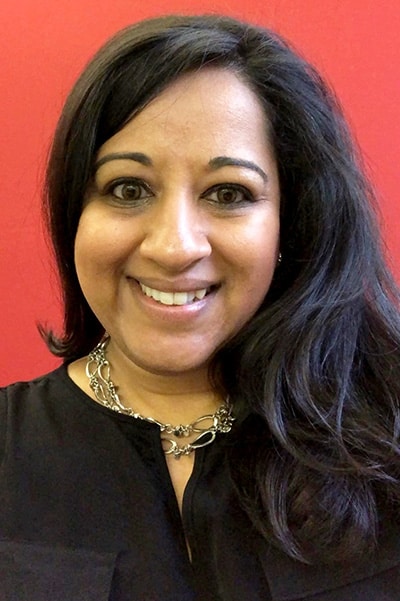Lessons Learned in Elementary School Remain in Demand Today
From the President | Neela Patel, Rutgers University
As many of us are approaching the half point of the academic year, along with the end of 2023, it provides a time for reflection for us to prepare for 2024. Reflection has taken on a new meaning for me over the past three years, as the concept of time has changed since the global pandemic. I sometimes cannot remember when something occurred, as 2020 felt like several years rolled into one, especially as so many of us are still trying to figure out the climate of our campuses post pandemic. However, as I started this academic year, I knew we would be facing several challenges, from budget deficits to the change in the workforce, but I was also excited about the year, as it felt like campus was back to normal again. Students were excited to be on campus; they were looking for ways to get connected and engaged; they were taking advantage of our services and resources; and most importantly our campus felt like a campus for the first time since 2019. This gave many of us a sense of hope and purpose again, as all these aspects are in our wheelhouse as student union and activities professionals. It gave meaning back to serving as the heart of the community.

As the semester continued, things quickly started to shift for many campuses because of what was occurring around the world. Many campuses saw protest and vigils occurring, and staff had to provide support and resources to students during these times. As this was occurring, I really started to think about our purpose and goal as student union and activities professionals regardless of the type of institution we worked at. As we started to navigate the campus climate and put into perspective our work, I reflected on our ‘why’ and the Role of the College Union Statement: “We serve as the heart of the community and create a welcoming environment.” What does this really mean, and how do our actions truly show our community that we are the heart and a welcoming environment?
In creating this community, I think about all the students we serve on our various campuses, regardless of their perspectives, thoughts, opinions, or backgrounds. What are we grounding our focus on to serve all students? I keep going back to the lessons that I learned in elementary school which are still being taught today. As you think back to those days, some of the lessons you learned were to share and work together, recognize the value of curiosity and learning, and the importance of kindness. These fundamental lessons learnt are true throughout our life regardless of our age or the situation, and I strongly feel they are more important than ever today as we face differing of opinions and values.
As community builders on our campuses, if we can stay grounded in these lessons, we can provide space for students, faculty, and staff to come together to have conversations across our differences in meaningful ways. Further developing on one’s curiosity to learn and gain new knowledge is what higher education is all about, and we have the opportunity to be the leader in this work-—going back to our roots as student union professionals centered on the idea of bringing students together. It was never about programs, welcome desks, or lounges—that all came later as we started to build student unions around the world.
As we get ready to enter 2024 and the second half of the academic year, focusing on these lessons may help us provide meaningful opportunities of engagement for our students. Our role is to cultivate a student’s curiosity to foster continuous learning. And we can do this by providing students the opportunities to engage in community building by connecting students with the diverse populations on our campuses, setting the course for new shared experiences and perspectives. These intentional spaces of learning and sharing allow students the breadth for their voices to be heard to create a supportive environment. We can do this by creating programming over a common theme that brings students from different perspectives together. Identifying and then using our commonalities as a safe space, we can then begin to witness that not everything in-between is different. Providing the opportunity to learn and ask questions can lead to understanding and respect despite our differences.
Remembering these lessons and reminding students of them can help us prepare these students for the future to navigate spaces from a place of curiosity, to learn in an environment of kindness and collaboration, and in the end, guide us and support us in advancing the
campus community.
